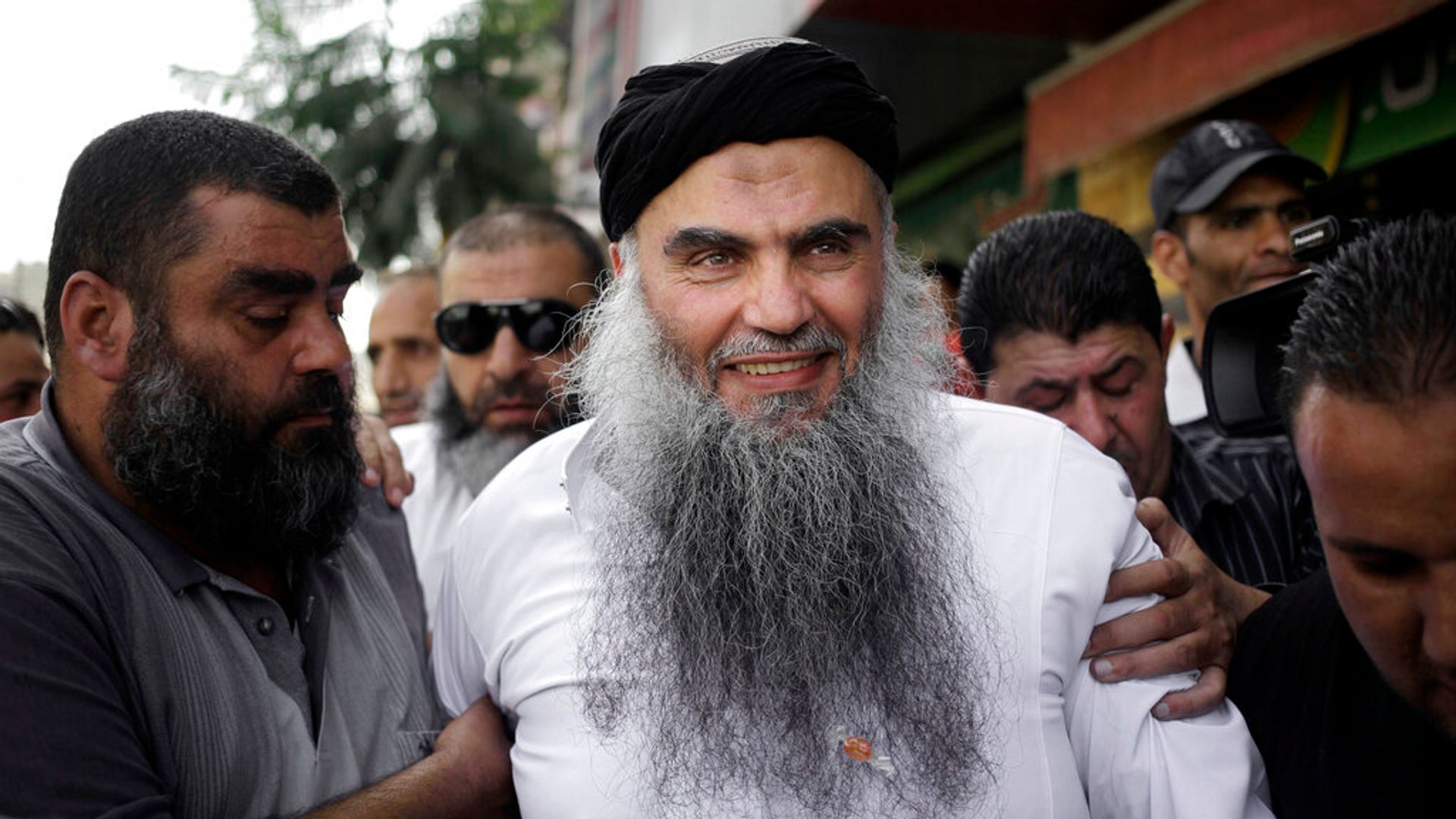Rishi Sunak accused Sir Keir Starmer of working for “extremists” as the pair traded blows at the first TV leaders’ debate.
Mr Sunak namechecked Abu Qatada and Hizb ut-Tahrir and told viewers to “Google it”.
It was a reference to the Labour leader’s work as a lawyer when he represented the radical cleric Qatada as well as the Islamist group Hizb ut-Tahrir.
It’s not the first time Sir Keir has come under attack for the people he has represented – to which he has made the point that lawyers do not get to choose their clients.
But who are Abu Qatada and Hizb ut-Tahrir, what did the leaders say at the debate – and what are the rules lawyers must follow?
What was said at the debate?
The prime minister’s dig came after Sir Keir took aim at the prime minister’s career before politics, saying he had made millions “betting against the UK during the financial crisis”.
Mr Sunak replied: “I’d rather rather have my job than work for extremists like Abu Qatada and Hizb ut-Tahrir”.
Sir Keir: “What, the Crown Prosecution Service is an extremist organisation?”
Mr Sunak: “No, Abu Qatada and Hizb ut-Tahrir were who you worked for as well so people can Google that and have a look.”
Sir Keir: “It’s desperate.”
Please use Chrome browser for a more accessible video player
Who is Abu Qatada?
Abu Qatada is a radical Islamist cleric who was once dubbed “Bin Laden’s right-hand man in Europe”.
The government ran a high-profile campaign to deport him while he was living in the UK, arguing he was a threat to national security. He faced terrorism charges in Jordan.
The Palestinian-Jordanian preacher had arrived in the UK in 1993 and was later granted asylum.
Britain first tried to deport him in 2001, but Qatada fought against his extradition for more than a decade.
It was during a 2008 hearing regarding his case that Sir Keir represented him when he was working as a defence barrister specialising in human rights cases.
Qatada was deported from the UK to Jordan in 2013. Following his deportation, Qatada was acquitted of terrorism charges by Jordan’s state security court in 2014.
The charges related to a series of bomb plots, targeting the Jerusalem Hotel and American School in the Jordanian capital, Amman.
What is Hizb ut-Tahrir?
Hizb ut-Tahrir is an Islamist group that was proscribed under the Terrorism Act earlier this year, making it an offence to belong to or support it.
Announcing the move, Home Secretary James Cleverly said Hizb ut-Tahrir was “antisemitic” and “actively promotes and encourages terrorism, including praising and celebrating the appalling 7 October attacks”.
According to the Home Office, the group was founded in 1953 “with a long-term goal of establishing a Caliphate ruled under Islamic law”.
“While their headquarters are in Lebanon, the group operates in at least 32 countries including the UK, United States, Canada and Australia,” the Home Office guidance adds.
The group has also been banned in many Arab nations, as well as in Germany and China.
Sir Keir provided legal advice to the group as head of the CPS when it was trying to overturn the ban in Germany, submitting an application to the European Court of Human Rights in June 2008.
What has the Labour leader said about his work as a lawyer?
Working as a lawyer means representing people you don’t agree with, Sir Keir told The Sun in an interview in March.
Defending his work representing Hizb ut-Tahrir, he likened it to how a doctor has a duty to treat whatever patients they see.
“The fact a doctor treats a patient doesn’t mean the doctor agrees with what the patient’s beliefs are,” he said.
“I was chief prosecutor for five years. I prosecuted with my team nearly a million cases a year, including terrorists, murderers and drug dealers.
“I was a lawyer before that and in the legal world, particularly if you’re doing criminal law, you represent people you don’t agree with.”
Read more:
The key moments from the first TV debate
PM may have shaded it but probably won’t win election
Keep up with all the latest news from the UK and around the world by following Sky News
What is the ‘cab rank’ rule?
There is a rule preventing barristers from refusing to work with potential clients because they disagree with their actions or views.
Called the cab rank rule, it means lawyers must accept whatever case they are given if it falls within their area of expertise.
This is laid out in the bar handbook: “Barristers do not choose their clients, nor do they associate themselves with their clients’ opinions or behaviour by virtue of representing them.”
Labour’s response
A Labour spokesperson said: “In this country, everyone is entitled to a defence, which means lawyers cannot choose who they work for. That’s how our justice system works and why it is the envy of the world.
“If you want to understand who Keir is, look at his record as the country’s top prosecutor. With his leadership, the Crown Prosecution Service locked up 150 terrorists.
“They included the first conviction of an Al-Qaeda ringleader, the ‘liquid bomb plotters’ who tried to carry out a British 9/11, and the first prosecution for chemical weapons production on British soil.”








